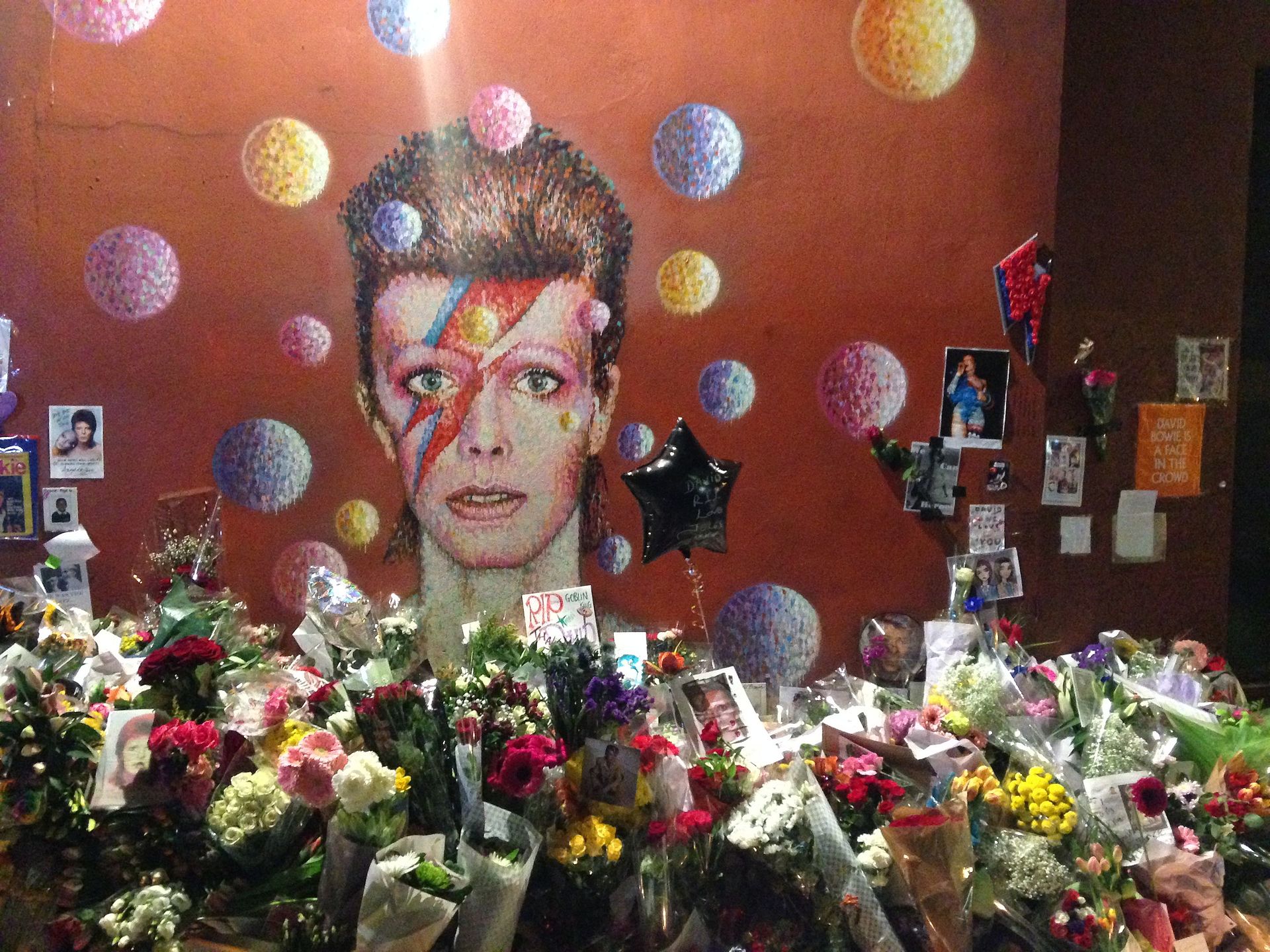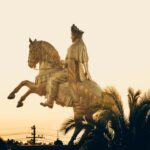The Day Bowie Brought the Wall Down

‘The Day Bowie Brought the Wall Down’-David Bowie’s political heritage-
‘Look up here, I’m in Heaven, I’ve got scars that can’t be seen, I’ve got drama that can’t be stolen, Everybody knows me now’, the first lines of David Bowie’s final single, Lazarus, could not have described the events that occurred on the 10th of January in a better way. It was on that day that the world lost one of its richest souls, David Robert Jones, better known as David Bowie, Ziggy Stardust, Aladdin Sane or one of the other 12 characters that the man represented. Bowie was not only someone who brought a revolution into music and art, he was also someone who brought an entirely different revolution about. It all started with the lines:’ I can remember, standing by the wall’.
It was at that same wall, the Berlin wall, during the month of July in the year 1977, that this story starts, the story in which David Bowie changed history, but this time, not through his music. So in 1976 Berlin, nicknamed the ‘’gap in the Iron Curtain’’ became the home of David Bowie, a man addicted to drugs who had spent more time looking at art than making it himself. Ironically it was that same word, change, that made Bowie decide to move to Berlin. In search of an exit, Bowie ended up in one of West-Berlin’s most famous buildings, the Hansa Studio.
Often described as the ‘Hansa Studio By The Wall’, the Hansa Studio was a recording studio, located in West-Berlin. It was in this studio that David Bowie recorded one of his greatest hits, Heroes. A song that would become a classic track, a song that would be covered a thousand times and ultimately become part of Bowie’s breath-taking legacy. During the recording sessions of Heroes, the story goes, Bowie looked outside the window and saw two people kissing in front of one of the biggest monuments of oppression and division, the Berlin Wall. This image did not leave him and ultimately, he decided that Heroes would be an homage to that particular moment of contrasts, of impossible love. The story between Bowie and the wall had begun, but it was only the start.
“Well he had a pretty good run for our money, for a guy who was no singer. But I think his time has been and gone, and this just sounds weary. Then again, maybe the ponderous heavy riff will be absorbed on the radio, and the monotonous feel may just be hypnotic enough to drag people into buying it. I hope not”, this review described how Heroes was generally poorly received back in 1977. Commercially Heroes was not that much of a success either, especially not when taking into account that Bowie was one of the most successful artists in the field. It seemed that Heroes was to become the embodiment of a man who lost himself, mentally as well as physically, David Bowie had come to ‘his end’. At least, that was what one thought.
Bowie left Berlin behind in 1979, only to return in 1987. In the evening of the 6th of June in that same year, David Bowie walked upon the stage and took the microphone in his hands. ’ I can remember, standing by the wall’, he sang, right in front of the wall that made him write the song he was now performing. On that night, the music was so loud, and the crowd so enthusiastic that it would have been impossible not to hear it at the other side of the Berlin Wall, in the eastern part of the city. Large amounts of eastern Berliners gathered alongside the Wall in order to hear the concert. ‘We could be heroes, just one day’, it must have inspired them on that particular night, as it was on that night that the first violent riots in the eastern part of the city took place. It would later proof to be the first in a long sequence of riots that would ultimately lead to the fall of the Wall, in 1989. Bowie had started something, the Berliners had ended it.
And so Heroes, the song that once was seen as a failure, as the endpoint to Bowie’s career, was drawn into history. And now, we are back in 2016, we are brought back to the day that the world lost David Bowie and David Bowie lost the world. It was on that day that Heroes became David’s Bowie most popular song on Spotify. It reached the 12th spot on the UK charts in that same week. And it was on that day, most importantly, that the German Foreign Office wrote the tweet that said it all: ‘’ Good-bye, David Bowie. You are now among #Heroes. Thank you for helping to bring down the #wall.’’. And yes, Sir Bowie, thank you for everything, from the smallest things such as bringing a smile on our faces when we listen to your beautiful music, to the biggest things such as changing the history as no other artist has ever done.
R.I.P David Robert Jones (8 January 1947-10 January 2016)
You can listen to the playlist: ‘’The Day Bowie Brought the Wall Down’’ on Spotify, as a brief introduction to Bowie’s work and a companion to this article: https://player.spotify.com/user/1117090190/playlist/4ygbhwDAu0I9ORaR3ozKi7
You can also visit the exhibition on David Bowie, entitled ‘David Bowie Is’ in the Groninger Museum until the 13th of March this year.
Featured Image:



